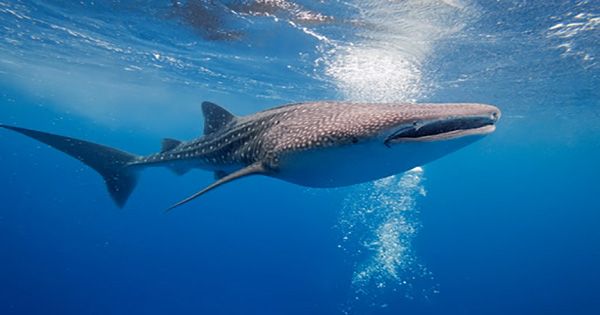New research on worldwide shark fishing mortality has exposed the true magnitude of humanity’s destructive influence on the oceans: over 80 million sharks are killed in fisheries each year, despite fishing laws and finning bans.
Between 2012 and 2019, when finning legislation was tenfold increased, global shark fishing mortality increased from 76 million to more than 80 million in 2017, with an average of 79 million between 2017 and 2019. The researchers believe that improving the analysis might result in 101 million shark fatalities in 2019.
Worse, between 22 million and 28 million sharks die each year, with the majority being vulnerable species.
“Over the past two decades, sharks have been increasingly recognized among the world’s most threatened wildlife and hence have received heightened scientific and regulatory scrutiny,” according to the report’s authors.

Overfishing poses a hazard to them, and pelagic tuna fisheries catch a huge number of them by accident. There is also growing demand for their fins, which are a significant commodity in Asian markets.
Protective regulations, mostly aimed at eliminating the practice of finning, have been implemented, coupled with agreements to limit the trade of threatened species, initiatives to resolve bycatch, and various public awareness programs. However, no studies have looked into the effect of these regulations on worldwide shark fishing mortality.
The team behind the current study changed that by combining fishery data, computer modeling, and expert interviews. However, their findings were not as encouraging as one might have hoped: generally, fishing-related mortality has increased in the last decade.
“By linking fishing mortality data to the global regulatory landscape, we show that widespread legislation designed to prevent shark finning did not reduce mortality,” they write, adding that regional restrictions were somewhat successful.
Shark deaths were concentrated in coastal hotspots, with 50 percent of global mortality happening in the territorial seas of only six coastal nations between 2017 and 2019. Four of these countries, Indonesia, Brazil, Mauritania, and Mexico, have “insufficient regulatory capacity” and are either major suppliers or consumers of shark meat.
“These findings suggest a shifting global landscape of shark fishing mortality that is moving away from finning of larger pelagic species toward full use of smaller coastal species, presenting new regulatory and conservation challenges,” the authors write as one possible explanation for their findings.
While serving as yet another reminder that we pose a greater threat to sharks than they do to us, the study also emphasizes the critical need for shark protection.
The authors told Live Science that measures such as shark fishing bans, catch limitations, and conserving crucial habitats could all assist in safeguarding sharks.
“It’s a solvable problem,” the lead author, Boris Worm, remarked. “But it’s a problem that needs to be tackled now because sharks do have not much time left.”
















